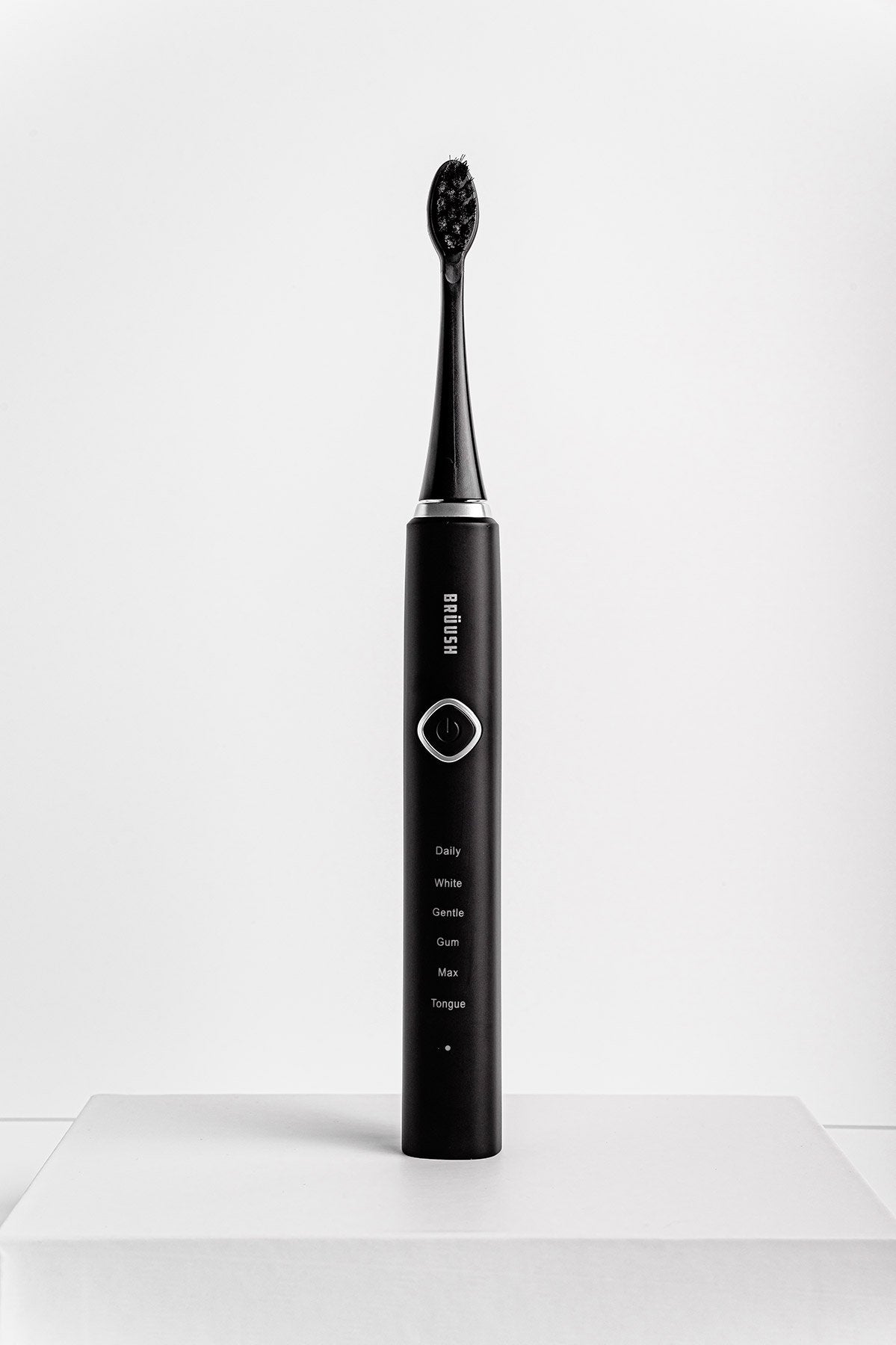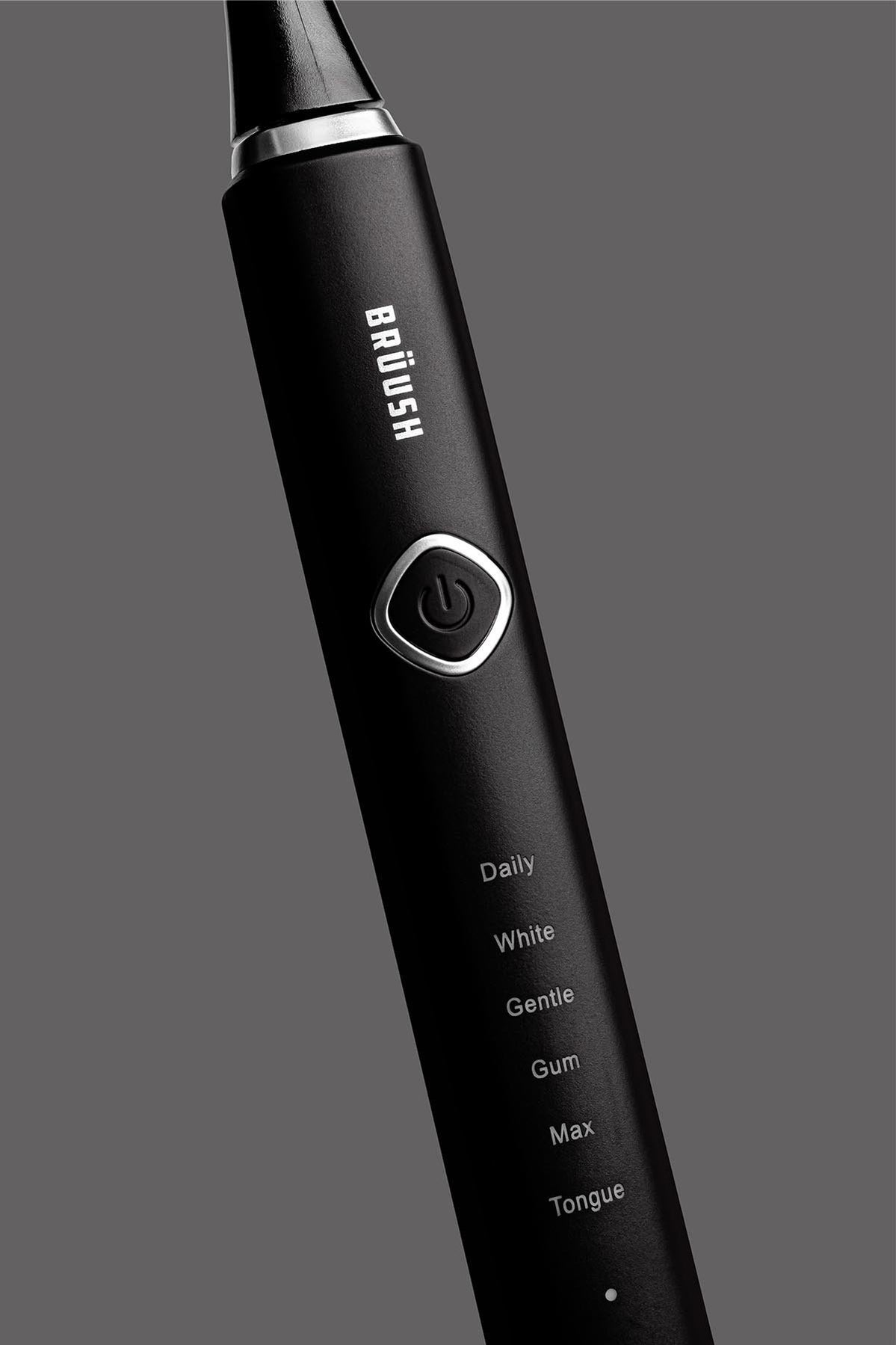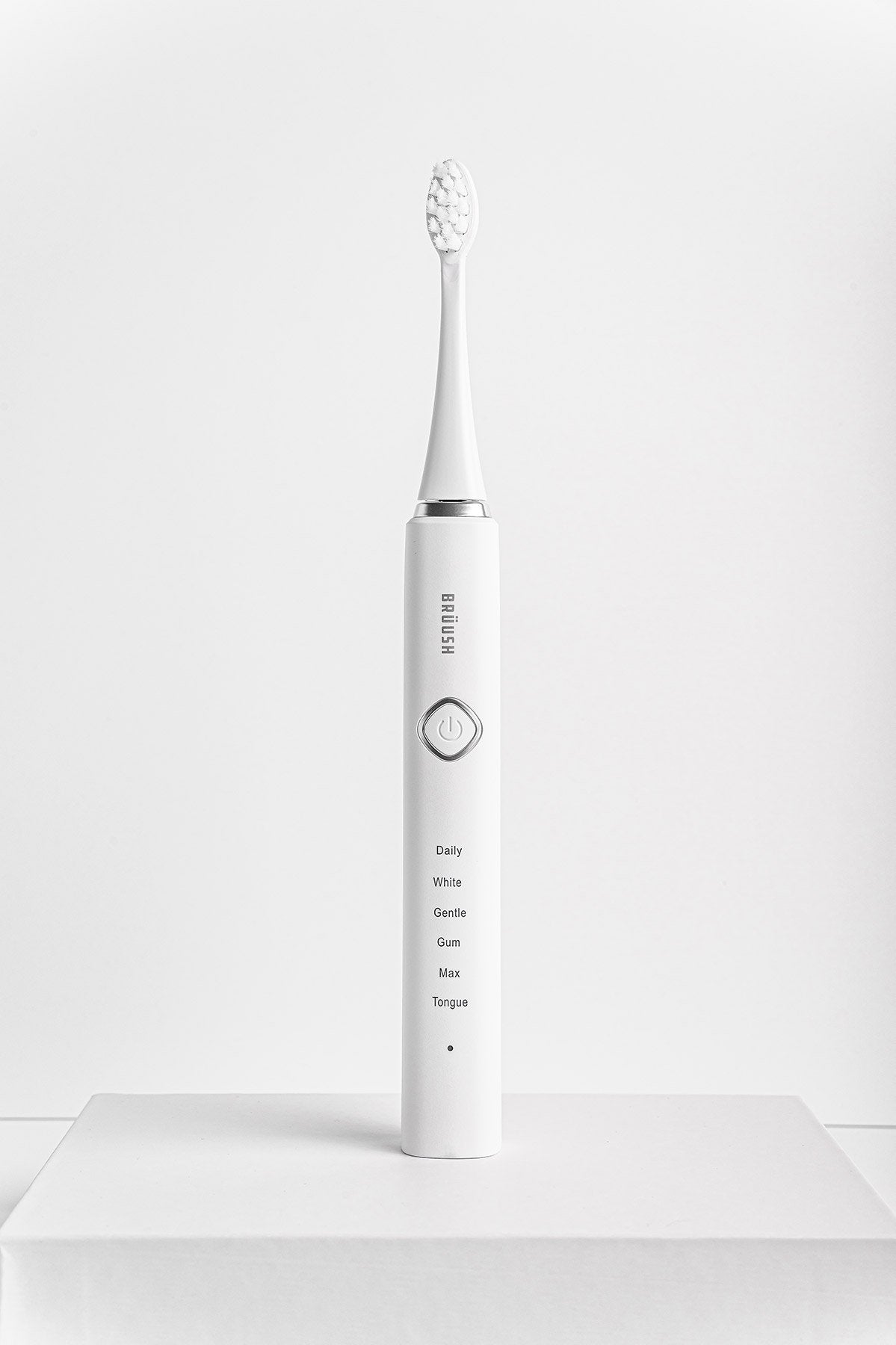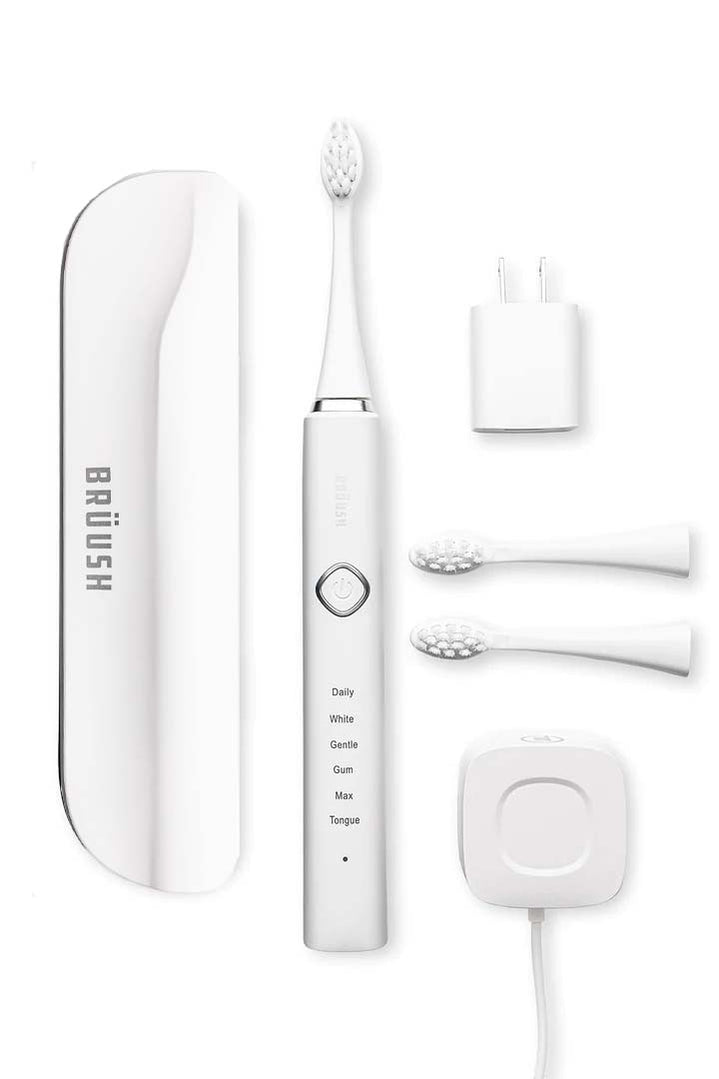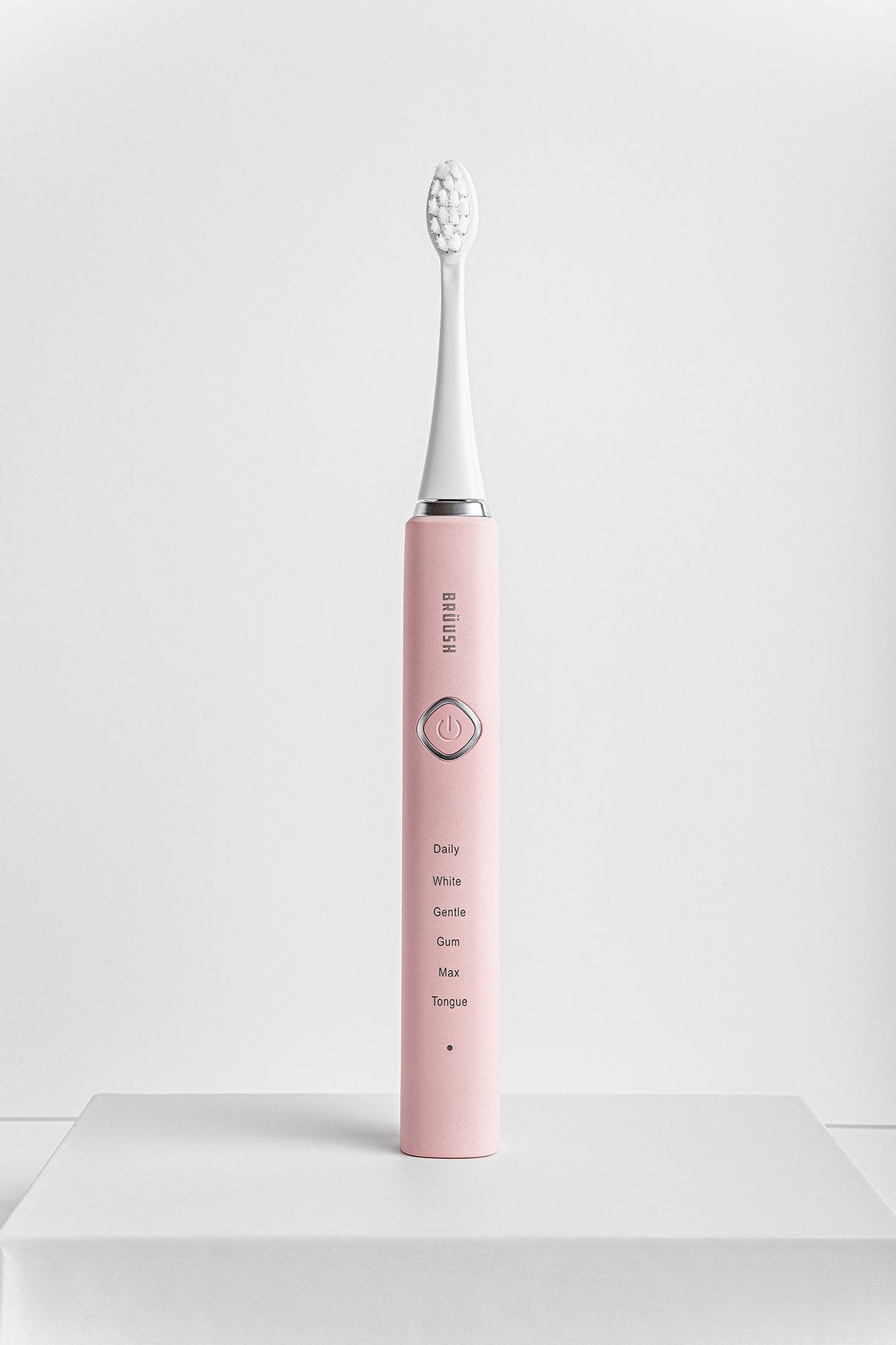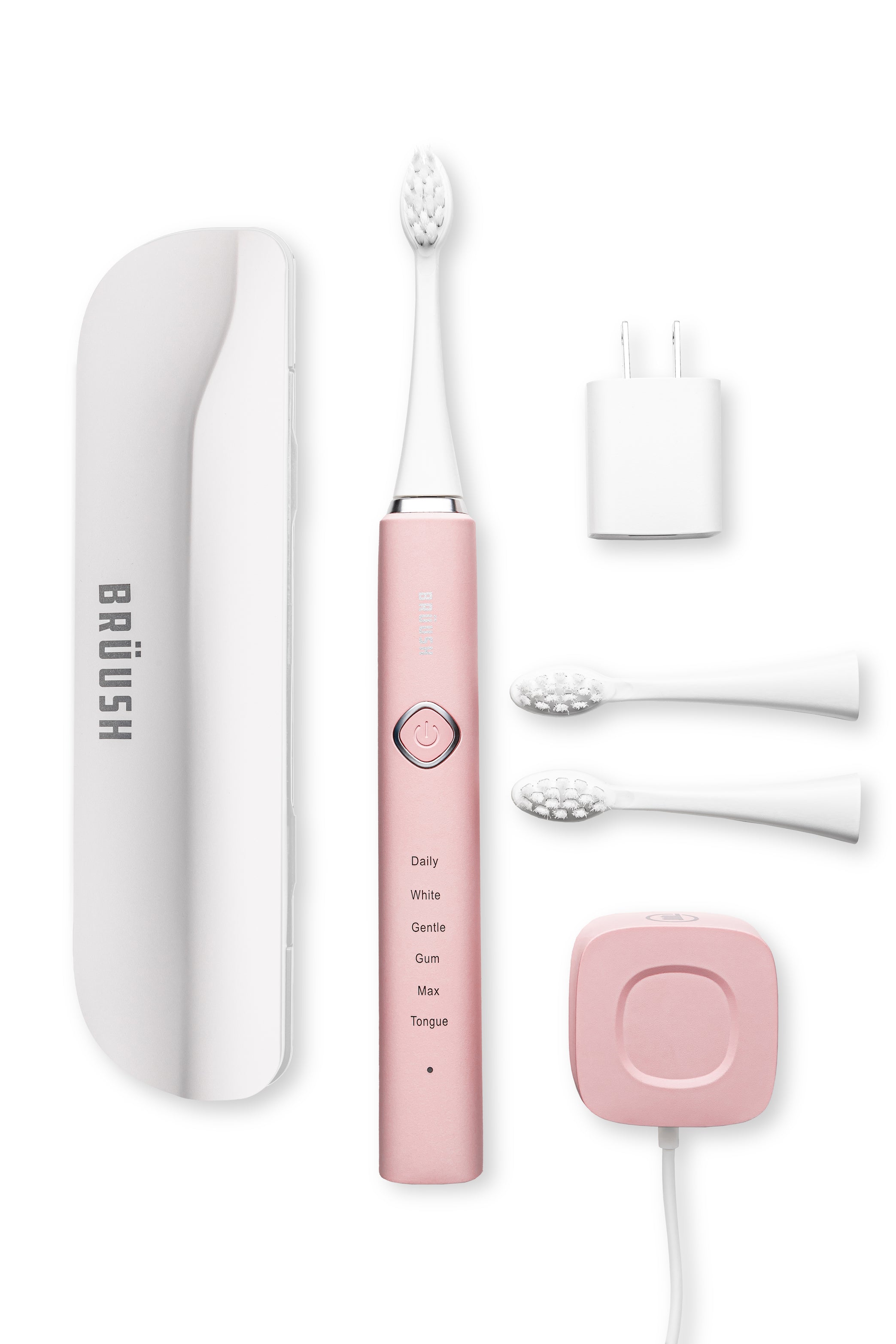As a parent you always want what's best for your kids, especially when it comes to their health. One important piece of the puzzle in the overall health of your child is their oral hygiene. It’s something that kids (and definitely toddlers) likely won’t think twice about, which means if you have a young child it’s on you to make sure their teeth and gums are in tip-top shape.
A big part of ensuring that you aren't making monthly trips to the dentist to fill in cavities is using the right products and tools—toothpaste, mouthwash, floss, and of course a good toothbrush. If you’ve ever used an electric toothbrush, you know that they can give your teeth a superior clean, but are they the right tool for the job when it comes to brushing children's teeth?
In this blog we’ll be looking into:
- The ideal age kids can start using an electric toothbrush
- A comparison of manual vs electric toothbrushes for kids
- Key factors to consider before buying a child an electric toothbrush
What Age Can Children Use Electric Toothbrushes?

It's common knowledge that electric toothbrushes offer a better clean than their manual counterparts, but what age is it okay for children to start using them?
According to the CDA, children under the age of 3 should have their teeth brushed by an adult, using a manual toothbrush with soft bristles. Once children are over the age of 3, they can then “graduate” to an electric brush. However, they should be brushing under the guidance of an adult until the age of 6.
- Under 3 years of age = manual toothbrush, brushed by an adult, using a rice grain sized portion of toothpaste
- 3 - 6 years of age = manual or electric toothbrush, assisted by an adult, with a pea sized portion of toothpaste
We were all kids—we know that brushing our teeth isn’t the most fun task. If you’re not there to provide guidance, you can bet that your child is missing key spots, or brushing too hard, or maybe not even brushing their teeth at all! So, electric toothbrush or not, make sure you’re helping your 6 and under children when they’re brushing in the AM or PM.
Can a 2 year old have an electric toothbrush?
Although battery/electric powered toothbrushes are a great option for most people, based on the above guidance from the CDA, children under the age of 3 should not use an electric toothbrush. A 2 year old will need to have an adult brushing their teeth using a manual toothbrush with soft bristles, making sure to brush each tooth and around the gumline!
Manual Toothbrush or Electric Toothbrush for Kids?
To use electric or manual, that is the question. Both types of toothbrushes have their own pros, and cons. But, when you break it all down, even with the higher upfront cost, the benefits of an electric toothbrush (including cleaning efficiency, better plaque removal, and the lower amount of plastic waste), make it the better choice than a manual brush for your child’s dental health.
Here are a few quick differences between the two:
- Manual toothbrushes require your own motion, averaging 200 brush strokes per minute, versus 30,000+ quick vibrations when you’re using an electric toothbrush. That’s a massive difference, and it can’t be understated! For kids who have a hard time focusing while they brush their teeth, this ensures that they’re still getting an effective clean.
- Manual toothbrushes can lead to over brushing or underbrushing, whereas electric models often have a built-in timer that lets you know when it’s time to move to the next area of your mouth. Again, one more feature that makes brushing easier for children.
- Manual toothbrushes are always the cheaper option, and quite easy to find as well. Electric toothbrushes vary in price, but are on the more expensive end and often need to be ordered online.
- Manual toothbrushes (depending on the model and brand) can have very kid friendly handles, with ridges and grooves that are more easy to grip. Many electric toothbrushes are also designed with ergonomic handles, but, unless made specifically for children, they tend to be more sleek and smooth.
Why Electric Toothbrushes are Better Suited for Kids
Now it’s time to geek out a little bit. Benefits, features, and data—oh my! Let's take a deeper look into why an electric toothbrush could be your best choice for your child’s teeth and overall dental health.

1. A More Efficient Clean
No one wants their kids to have cavities or tooth decay. One of the best things about an electric toothbrush is just how clean it can get your teeth in such a short amount of time. In just 2 minutes you can get that dentist fresh feeling. Technically, you can get the same type of clean with a manual brush, but in order to do so, your child would have to brush for 3x the amount of time.
2. Better Plaque Removal
A big factor that goes into maintaining your child's oral health is the removal of plaque that can lead to swollen gums, cavities, or even gum disease. Electric brushes do a great job of this—according to a 2015 consumer report, electric brushes remove 21% more plaque than a manual brush.
3. The 2-Minute Timer
Lets face it, at a young age kids don't necessarily have the best sense of time. The 2-minute timer is very beneficial in making sure they brush for as long as required for an effective clean. Some children’s electric toothbrushes even play music for 2 minutes to make brushing fun, such as the Disney Magic Timer App.
4. Less Plastic Waste
Your kid likely won’t care about it, but you should! In the long run buying an electric toothbrush creates less plastic waste since you only have to replace the head of the toothbrush as opposed to the whole thing every 3-4 months. If you have your child using electric toothbrushes from an early age, that can cut down on a lot of garbage!
Factors to Consider Before Purchasing Kids an Electric Toothbrush
Not all brushes are created equal—this is especially noticeable within the electric toothbrush category. Here are a few things to take into account when choosing the perfect electric toothbrush for your kid:
- Softness: Make sure to choose an electric toothbrush with extra-soft bristles. The last thing you want is hard bristles that could irritate your kids teeth and gums. Particularly because electric brush heads move really, really fast, there’s no need for stiff bristles.
- Features: Whether it be a cool design, or a toothbrush that plays music as a two minute timer, there are plenty of features to look out for that can make the brushing experience more enjoyable for your child.
- Brush head size: Toothbrushes are not one size fits all. Make sure when selecting an electric toothbrush for your young child to look for small brush heads—this will help them reach their back molars comfortably.
- Handle size and shape: Kids have little hands, and holding a big toothbrush can be difficult. Depending on your child (and their age), it may be better to use a kids’ electric toothbrush versus a standard electric one made for adults.
- Replaceable brush heads: Make sure to choose an electric toothbrush that has replaceable brush heads. This will allow you to remove and replace the brush head every 3 months so that your child is not damaging their teeth and gums. By using worn down bristles or a dirty toothbrush, you’re introducing bacteria and not getting as effective of a clean.
- Fun elements: To keep kids engaged while brushing, consider choosing an electric toothbrush that plays music, has bright colors, or even one that references popular movies like Star Wars or Marvel.
Are There Safety Concerns with Kids Electric Toothbrushes?
The simple answer to this question is no, as long as they are over the age of 3! It all comes down to their brushing process, and if you’re enforcing a solid oral health routine.
Whether they’re using a manual or an electric, as a parent you should be supervising your child while they brush to make sure they’re using proper brushing technique. This will help to ensure they’re not damaging their teeth or gums by brushing too hard, and help avoid any choking situations on things like loose teeth. Not to mention, it helps create a great foundation for their oral health, by ensuring good oral hygiene habits early on.
